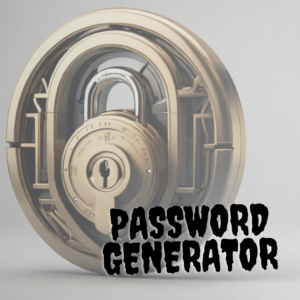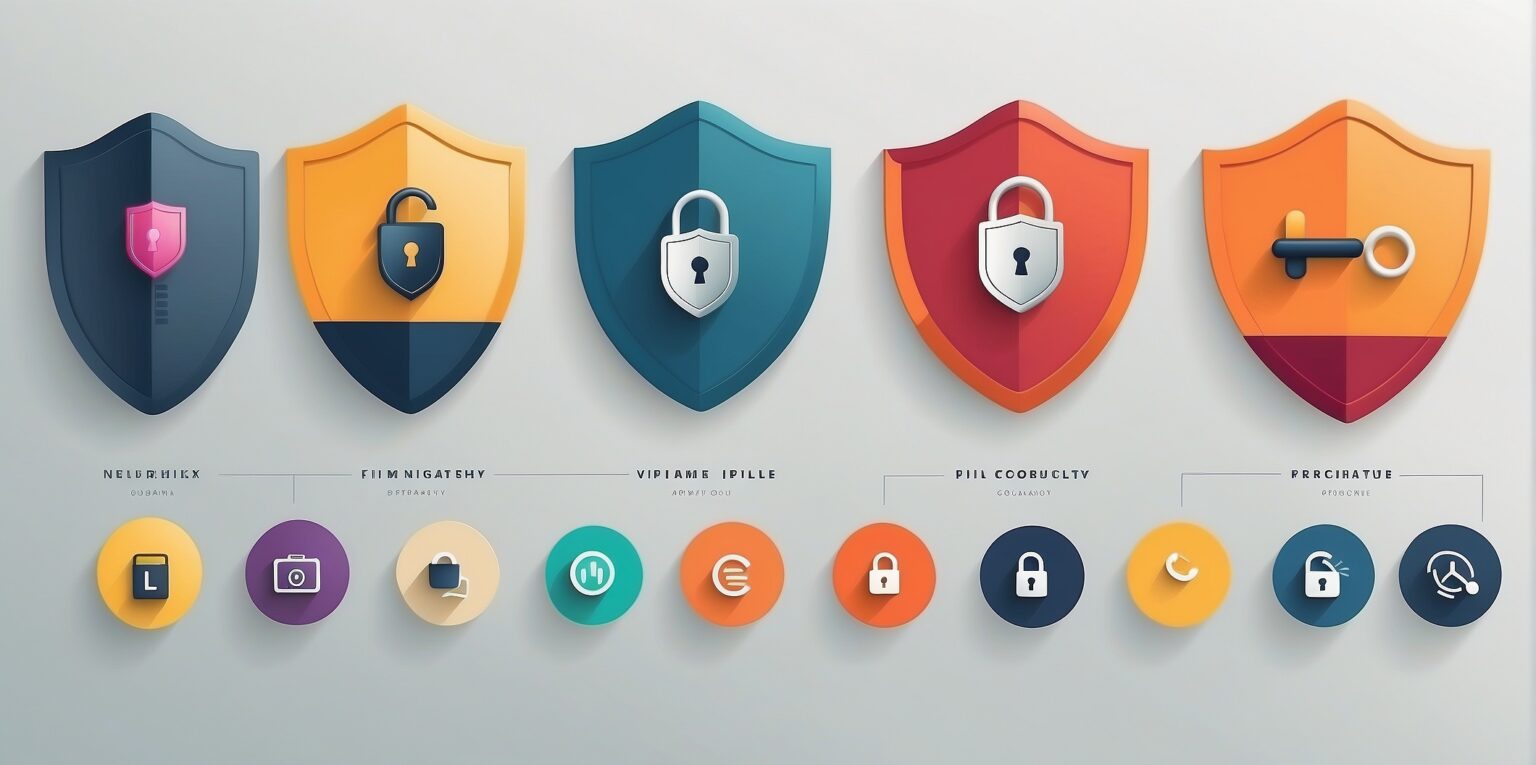Random Password generator
Boost Your Online Security with serveprompt strong random Password Generator – Create strong, random, and unique passwords effortlessly. Enhance your account protection against cyber threats using random password generator. Fast, secure, and customizable for optimal SEO. Explore the strong random password generator for ultimate online safety! For more answer question contact us.
Random Password Generator
| Password Length: | Range min:5 max:20 ,
Your Length: 10 |
|
| Include Uppercase Characters: | Yes | |
| Include Lowercase Characters: | Yes | |
| Include Special Characters: | Yes | |
| Include Numbers: | Yes | |
What turns a password into a strong one ?
Long Character :
The more characters your password has, the safer it is. Aim for a sturdy password that’s at least 10 characters long.
Complex Password :
To create a strong password, mix things up! Combine letters, numbers, upper and lowercases, and symbols to craft a unique sequence that doesn’t look like common words or names.
Unique one:
For better security, make sure each of your passwords is different for every account. This way, if one account gets compromised, the others stay safe


Random Password generator FAQ's
Wondering why you should bother with a random password generator? Here are some good reasons
Beefed-Up Security:
Random password generator whip up complex and random combinations, making it way harder for sneaky folks to crack your codes.
No More Basic Choices:
Random password generator keep you away from the usual suspects, like common words or simple number sequences, which can be a weak link in your security.
One-of-a-Kind for Each Place:
generate password make sure each password is unique. So, if one password gets spilled, your other accounts stay safe and sound.
Super Convenient:
Instead of racking your brain for intricate passwords, a generator does the heavy lifting for you, making your life easier and your accounts more secure.
Time Saver:
It whips up strong passwords in a jiffy, saving you time and effort compared to trying to come up with them yourself.
Customizable Complexity:
You can often tweak the complexity level, tailoring the generated passwords to fit the security rules of different websites.
So, using a Random password generator? It’s a clever move to amp up your online security and keep your passwords in check.
Is it necessary to have a unique password for each account?
Absolutely, it’s a smart move to use different passwords for each of your accounts, and here’s why:
Extra Security Boost:
If one of your passwords falls into the wrong hands, having unique passwords ensures that your other accounts stay safe and sound.
Limit Damage from Breaches:
Picture a data breach on one site – having different passwords stops the ripple effect, so your other accounts aren’t left exposed.
Dodging Password Reuse Risks:
Using the same password for multiple accounts is like leaving the front door wide open. If one account is compromised, others could be at risk.
Shielding Your Secrets:
Different accounts often hold different kinds of info. Unique passwords add an extra layer of protection, especially for accounts with your personal or financial details.
Stopping Sneaky Attacks:
Repeating random passwords makes it easier for cyber crooks. They might try the same login info on different sites, and that’s not a game you want to play.
What ensures the safety of a password?
Creating a strong and safe password is really important to keep your accounts and personal information secure. Here are some simple tips to make sure your password is strong:
Make it Long:
Longer passwords are better, so try to use at least 12 characters.
Watch Out for Tricks:
Be careful with phishing attempts. Don’t enter your password on websites that seem suspicious.
Extra Safety Measures:
Set up secure account recovery options and be cautious with security questions.
Check Your Accounts:
Regularly review your accounts and deactivate any that you’re not using anymore.
is random password generator is safe?
Yes, a random password generator is generally considered safe. The security of a password generated by such tools depends on several factors:
Randomness Algorithm:
A good random password generator uses strong algorithms to ensure true randomness in the selection of characters, making it difficult for attackers to predict or guess the password.
Length and Complexity:
Generated password by reputable tools are often of sufficient length and complexity, incorporating a mix of uppercase and lowercase letters, numbers, and special characters.
Cryptographic Strength:
Some password generators employ cryptographic principles to enhance the strength of generated passwords, making them resistant to various types of attacks.
No Patterns or Predictability:
A secure password should not follow any discernible patterns or be based on easily obtainable information, ensuring that it remains unpredictable.
is there strong password be hacked?
While it’s not very common for a really strong password to be directly hacked by trying lots of guesses, it’s important to know that no password is completely foolproof. There are different ways attackers can try to get into accounts, even if you have a strong password:
Phishing Attacks:
Sometimes, people can be fooled into sharing their passwords through fake emails or websites that look real.
Social Engineering:
Attackers might try to trick people into giving away their passwords by using sneaky tactics or taking advantage of personal information.
Keyloggers and Malware:
There’s malicious software that can secretly record what you type, capturing passwords without you knowing.
Data Breaches:
If a website or service gets hacked and passwords are exposed, even strong passwords can be at risk.
Common Password Mistakes
Choosing Easy Passwords:
Instead of using common words you’d find in a dictionary, go for something more unique and less predictable. Avoid personal details like your name, birthday, or pet’s name.
These are easily discoverable by others. Stay clear of simple keyboard patterns like “qwerty” or “123456,” as they are widely used and easily cracked.
Reusing Passwords:
It’s crucial not to use the same password for different accounts. If one gets compromised, it puts all your other accounts at risk.
Consider using a password generator. It helps generate and store unique random passwords generator for each account, making your life easier and more secure.
Sharing Passwords:
Keep your passwords to yourself. Even if you trust someone, sharing passwords can lead to unforeseen complications.
Using Public Wi-Fi Cautiously:
Be cautious about using public Wi-Fi for sensitive activities. Your data could be intercepted by hackers. Stick to more secure networks for online banking or shopping.
Being Wary of Phishing Scams:
Stay alert for suspicious emails or texts asking for personal information. Don’t click on links unless you’re certain of their legitimacy. Phishing scams aim to trick you into revealing your passwords.
How password generator works ?
User Inputs:
The user specifies certain parameters for the password, such as length, the inclusion of uppercase and lowercase letters, numbers, and symbols.
Randomization:
Password generator uses a randomization algorithm to create a unique combination of characters based on the specified criteria.
Character Set Inclusion:
password generator ensures that the password includes the elements requested by the user, such as uppercase and lowercase letters, numbers, and symbols. This mix enhances the password’s strength.
Avoiding Predictability:
To increase security, password generator avoids using easily guessable patterns, common words, or easily recognizable sequences.
Entropy:
The strength of a password is often measured in entropy, a concept that gauges the unpredictability of the password. Higher entropy indicates a more secure password.
Secure Delivery:
Once generated, the password is securely delivered to the user or stored in a password manager. Some generators also provide options for copying to the clipboard or exporting.
Why should my password be unique?
Security Against Hacks:
If your password is unique, it’s less likely that someone can easily guess or predict it. Hackers often use automated tools that try common passwords or known combinations.
A unique password adds an extra layer of defense against these attacks.
Protection Across Accounts:
Using the same password for multiple accounts is risky. If one account gets compromised, hackers can potentially access all your other accounts.
Having a unique password for each account ensures that even if one is breached, the others remain secure.
Mitigating the Impact of Data Breaches:
Data breaches happen, and your login credentials could be exposed. If you reuse passwords, a breach on one platform could lead to unauthorized access on others. Using unique passwords minimizes the impact of such incidents.
Preventing Credential Stuffing Attacks:
In a credential stuffing attack, hackers use stolen usernames and passwords from one site to gain unauthorized access to other sites where users have reused the same credentials.
Unique passwords make it difficult for attackers to exploit this method.

